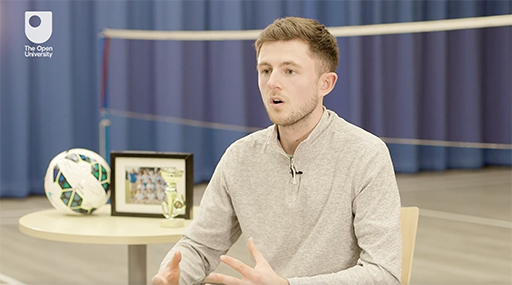4 Hard and soft skills
As outlined in the previous section, skills required in the workplace are generally split into two categories: hard skills and soft skills. Here, you are going to examine these in more detail to ensure that you clearly recognise the difference between the skill types and why they are important.
Activity 6 Differentiating between hard and soft skills
Listen to a section (01:49 to 3:26) of the clip below from the American podcast, The Work in Sports, with presenter Brian Clapp and answer the questions that follow.
Transcript: The Work in Sports podcast
- How does the presenter explain the difference between hard and soft skills?
- How does he frame the importance of soft skills?
Answer
- Through the presenter’s description we can deduce that hard skills tend to focus on specific, technical knowledge and capabilities. In contrast, soft skills are viewed as broader attributes which can influence how we do our work, i.e. the behavioural characteristics and elements of our individual personality.
- The presenter suggests that soft skills have capacity to be more important than hard skills as the latter can often be taught within a job. Employers often look for the ‘person’ when recruiting, rather than a technical skill set. The challenge is ensuring that soft skills are represented effectively within CVs, job applications, and interviews.
The term ‘soft skills’ is often interchangeable. You may have heard them also described as employability skills, leadership skills, transferable skills, or personal skills. They, essentially, mean the same thing and to be consistent in this course, we will use the term ‘employability skills’. Before introducing the Open University’s Employability Framework, you are going to identify some of these skills that resonate most with you.
Activity 7 What skills are important to you?
Comment
As you will see from the poll there is a variety of responses. This was a very subjective task based on your own impression or the kind of job you are in. In the next section you will be able to see how many of these terms feature in the Open University’s Employability Framework.
In the Spotlight
In this short video below, George shares his thoughts on the skills he considers crucial for his career. Compare his choices with the ones you picked. Do they align, or do you have some exciting differences to consider?


